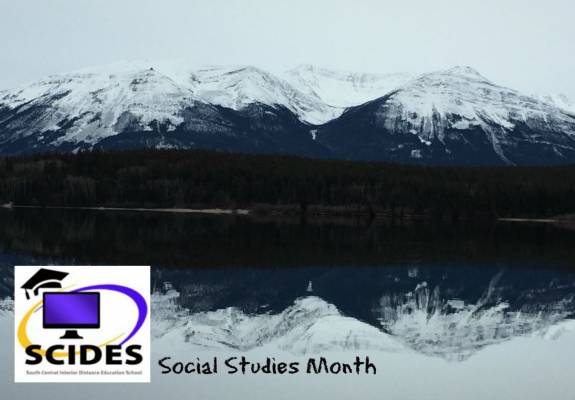- Font size: Larger Smaller
- Hits: 17049
- 0 Comments
- Subscribe to this entry
- Bookmark
February is Social Studies Month at SCIDES

Hard to believe the first month of the new year is already over, but here we are: it’s February! We hope you had a chance to test the waters with journaling in January; if you missed our writing prompts, you can find them here. It’s never too late to give journaling a try.
This month we celebrate Social Studies Month at SCIDES. Social Studies are an important part of the core curriculum. They encompass world history, as well as a closer look at Canada, while also considering human society, political science, philosophy, and more. A broad and very interesting field, with many opportunities to create your own learning plan. Contact us at SCIDES to find out more about individualizing your education!
Social Studies are a gateway to exploring other cultures and connecting with customs and traditions from around the world, and two events that can help facilitate this connection are African Heritage and Health Week, as well as Black History Month.
February 1-7 is African Heritage and Health Week, and this website has a wealth of information on the topic, as well as tasty recipes to try.
The whole month of February is dedicated to observing Black History Month, and 2017 brings not only Canada’s 150th anniversary of confederation, but also several significant anniversaries in Canadian Black History. Find out more about it here.
Talking about Canada’s 150th birthday – it’s a great opportunity to learn more about our history hands on, for example by visiting one of Canada’s National Parks. Admission is free for anyone during 2017, and there are many more activities you can participate in! Visit this website to get a constantly updated schedule of events, as well as a day-by-day play of Canadian history throughout the centuries.
Another important and very interesting topic is the history and culture of the indigenous people of Canada. A very informative site with a wealth of information can be found here, including a close look at the difference in terms like first nations, indigenous, Indian, native, etc.
You can read a thorough analysis of which term to use when on this site, and we’ve summarized the main points for you here:
Aboriginal refers to the people who first inhabited Canada, and is often used as a term inclusive of First Nations, Metis, and Inuit. Using the term First Nations is more of an ethnical (rather than a legal/status) description, for aboriginal people who are neither Inuit nor Metis. Inuit and Metis are both used for specific groups of Aboriginal people, with Inuit living in the northernmost communities of Canada, and Metis being the descendants of mixed European and Aboriginal heritage.
Indian is a legal term, used to classify legal status, and is considered both an outdated, as well as an offensive term. Native is generally not considered offensive and classifies the geographic origin of someone, but can also carry a negative connotation, depending on its use.
A fascinating topic, and an important one as well, as we all work towards honouring and integrating both aboriginal and immigrant cultures into the fabric of our country.
Global and Canadian history are an important and fascinating topic, but history also happens at the local level, every day, and it includes you. The choices you make every day might be something others read about in history books many years from now!
To learn more about your local history, simply google “local museum” and Google will show you the museum closest to you. And if you want to find out more about what it takes to start a museum, check out this guide!
What history will you explore this month? We’d love to hear about it! Chime in on our Facebook page, or contact us at SCIDES to find out more about our Social Studies courses.




